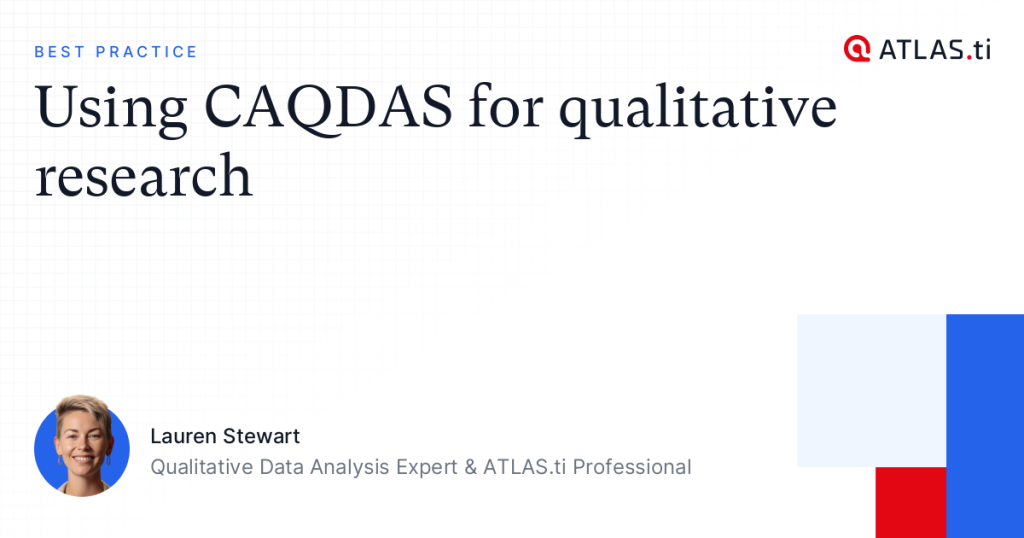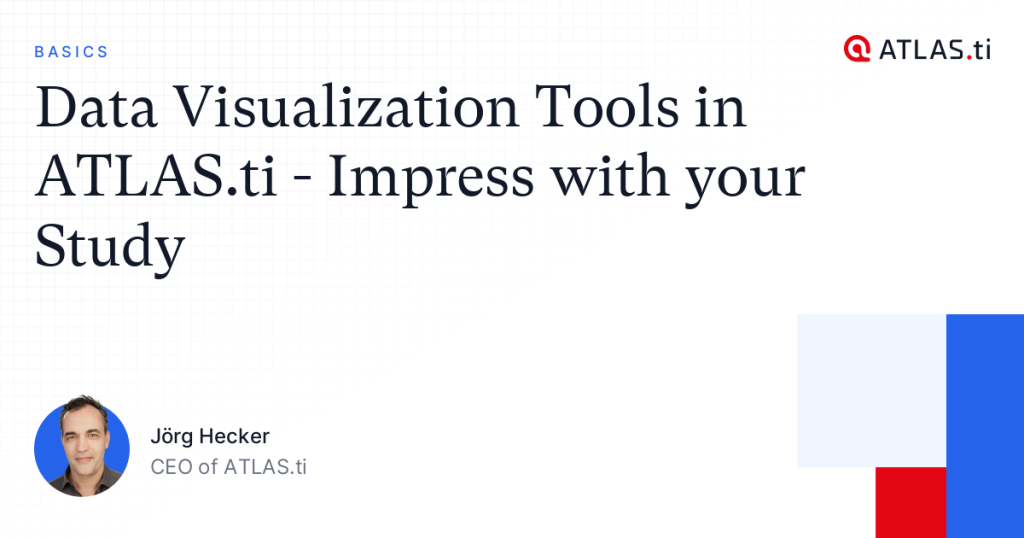ATLAS.ti Overview

ATLAS.ti is a powerful qualitative data analysis software designed to assist researchers and analysts in managing and interpreting qualitative data. It provides a comprehensive set of tools and features that facilitate the process of organizing, coding, and analyzing various forms of qualitative data, including text, images, audio, and video.
- Data Organization: ATLAS.ti allows users to import and organize diverse forms of qualitative data, making it easy to manage large and complex datasets.
- Coding and Annotation: Researchers can apply codes and annotations to segments of data, enabling them to categorize and label information based on themes, topics, or concepts.
- Advanced Search and Retrieval: The software offers powerful search capabilities, allowing users to quickly locate specific information within their dataset.
- Visual Representation: ATLAS.ti enables the creation of visual representations of data, such as concept maps, networks, and diagrams, to help users gain a deeper understanding of their findings.
- Team Collaboration: ATLAS.ti provides features for collaborative work, allowing multiple researchers to work on the same project simultaneously.
- Auto-Coding and AI Integration: The software may incorporate automated coding techniques and integrate with AI-powered tools for enhanced data analysis.
- Data Visualization and Reporting: It offers tools for creating visual summaries and reports, facilitating the presentation of research findings.
- Data Security and Privacy: ATLAS.ti often includes features to ensure the security and privacy of sensitive research data.
ATLAS.ti Product

- Coding and Annotation: Researchers can apply codes and annotations to segments of data, helping them categorize and label information based on themes, concepts, or topics.
- Search and Retrieval: The software provides robust search capabilities, allowing users to quickly locate specific information within their dataset.
- Visual Representation: ATLAS.ti allows for the creation of visual representations, such as concept maps, networks, and diagrams, to enhance understanding and insights from the data.
- Collaboration Features: ATLAS.ti facilitates collaborative work by allowing multiple researchers to work on the same project simultaneously.
- Quotation and Memos: Users can extract and save specific quotations for reference, as well as create memos to record thoughts, ideas, and reflections.
- Auto-Coding and AI Integration: Depending on the version and updates, ATLAS.ti may incorporate automated coding techniques and integrate with AI-powered tools for more advanced data analysis.
- Data Security and Privacy: ATLAS.ti typically includes features to ensure the security and privacy of sensitive research data.

ATLAS.ti Customer Services
- Technical Support: ATLAS.ti provides technical support to help users with any software-related issues they may face. This may include troubleshooting, installation assistance, and guidance on using specific features.
- Documentation and Guides: The company often offers comprehensive documentation, user guides, and tutorials to help users navigate the software and make the most of its features.
- Training and Workshops: ATLAS.ti may conduct training sessions, workshops, and webinars to educate users on how to use the software effectively for qualitative data analysis.
- Online Community and Forums: Users can often engage with the ATLAS.ti community through forums, discussion boards, or online communities. This allows them to seek advice, share experiences, and connect with other researchers using the software.
- Software Updates and Maintenance: ATLAS.ti typically provides regular software updates, bug fixes, and maintenance releases to ensure that users have access to the latest features and improvements.
- Consulting and Customized Solutions: Some organizations may offer consulting services or customized solutions for specific research projects, tailoring ATLAS.ti to meet the unique needs of the user.
- Knowledge Base: The company may maintain a knowledge base or FAQ section on their website, providing answers to commonly asked questions and solutions to common problems.
ATLAS.ti Benefit, Features And Advantages

Benefits:
- Efficient Data Management: ATLAS.ti allows for the organized storage and management of qualitative data, making it easy to access and analyze.
- Enhanced Categorization: Users can apply codes and annotations to segments of data, facilitating the categorization and labeling of information based on themes or concepts.
- Visual Representations: ATLAS.ti offers tools to create visual representations like concept maps and diagrams, aiding in the visualization of complex relationships within the data.
- Mixed Methods Research Support: The software accommodates both qualitative and quantitative data, making it suitable for researchers conducting mixed methods studies.
Features:
- Coding and Annotation: Researchers can apply codes and annotations to segments of data, aiding in the systematic analysis and interpretation of information.
- Advanced Search and Retrieval: The software offers robust search capabilities, allowing users to quickly locate specific information within their dataset.
- Quotation and Memos: Users can extract and save specific quotations for later reference, and create memos to record thoughts, ideas, and reflections.
- Collaboration Tools: ATLAS.ti supports collaborative work, enabling multiple researchers to work on the same project simultaneously.
- Auto-Coding and AI Integration: Depending on the version and updates, ATLAS.ti may incorporate automated coding techniques and integrate with AI-powered tools for more advanced data analysis.
Advantages:
- Facilitates Rigorous Research: ATLAS.ti enables researchers to conduct thorough and rigorous qualitative research, ensuring the credibility and trustworthiness of findings.
- Versatility in Data Types: ATLAS.ti accommodates a wide range of qualitative data types, making it suitable for various research projects and disciplines.
- User-Friendly Interface: The software typically offers an intuitive and user-friendly interface, making it accessible to both experienced researchers and those new to qualitative analysis.

Experts of ATLAS.ti
- The software offers a user-friendly and intuitive interface, making it easy for users to navigate and utilize its features.
- Atlasti.com provides comprehensive support and training resources, ensuring that users can effectively learn and maximize the potential of the software.
- The tool allows for efficient organization and management of qualitative data, enabling researchers to analyze large datasets conveniently.
- Atlasti.com offers robust coding and analysis capabilities, allowing researchers to identify patterns, themes, and relationships within their data.
- The software facilitates collaboration by offering options for multiple users to work on projects simultaneously.
ATLAS.ti Conclusion

In conclusion, ATLAS.ti stands as a powerful and versatile tool for qualitative data analysis. Its array of features and benefits make it an indispensable resource for researchers and analysts across various disciplines.
With ATLAS.ti, researchers can efficiently manage and analyze qualitative data, ranging from text to multimedia. The software’s capabilities, including coding, annotation, and visualization, enable in-depth exploration and interpretation of complex datasets.
The collaborative features of ATLAS.ti promote teamwork and knowledge sharing among researchers, enhancing the efficiency and effectiveness of research endeavors.

